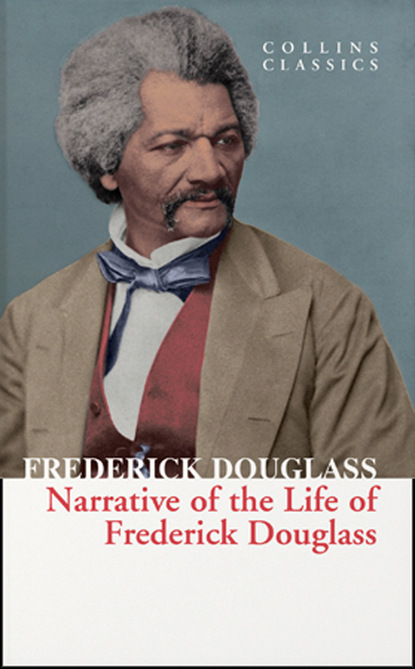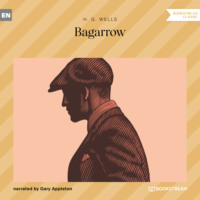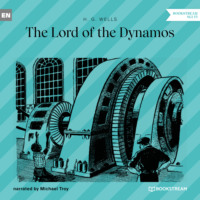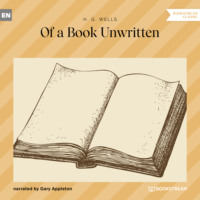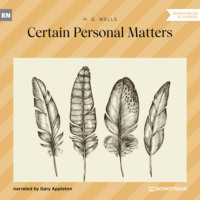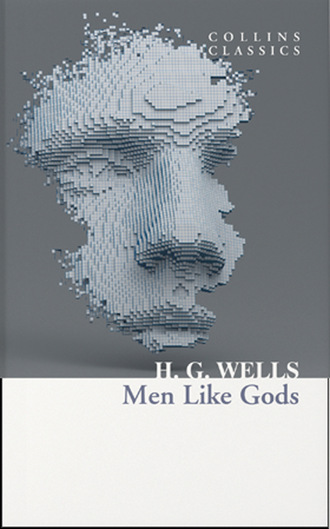
Men Like Gods
“But you don’t understand,” cried Lady Stella. “It’s almost—sacred! It’s for nobody to see—ever.”
“But why?” the Utopian asked, puzzled beyond measure.
Lady Stella found an answer impossible.
The light meal that followed was by terrestrial standards an entirely satisfactory one. The anxiety of Mr. Freddy Mush was completely allayed: there were cold chicken and ham and a very pleasant meat pate. There were also rather coarse-grained but most palatable bread, pure butter, an exquisite salad, fruit, cheese of the Gruyere type, and a light white wine which won from Mr. Burleigh the tribute that “Moselle never did anything better.”
“You find our food very like your own?” asked the woman in the red-trimmed robe.
“Eckquithit quality,” said Mr. Mush with his mouth rather full.
“Food has changed very little in the last three thousand years. People had found out all the best things to eat long before the Last Age of Confusion.”
“It’s too real to be real,” Mr. Barnstaple repeated to himself. “Too real to be real.”
He looked at his companions, elated, interested and eating with appreciation.
If it wasn’t for the absurdity of these Utopians speaking English with a clearness that tapped like a hammer inside his head Mr. Barnstaple would have had no doubt whatever of its reality.
No servants waited at the clothless stone table; the woman in the white and scarlet robe and the two aviators shared the meal and the guests attended to each other’s requirements. Mr. Burleigh’s chauffeur was for modestly shrinking to another table until the great statesman reassured him with: “Sit down there, Penk. Next to Mr. Mush.” Other Utopians with friendly but keenly observant eyes upon the Earthlings came into the great pillared veranda in which the meal had been set, and smiled and stood about or sat down. There were no introductions and few social formalities.
“All this is most reassuring,” said Mr. Burleigh. “Most reassuring. I’m bound to say these beat the Chatsworth peaches. Is that cream, my dear Rupert, in the little brown jar in front of you? … I guessed as much. If you are sure you can spare it, Rupert … Thank you.”
2
Several of the Utopians made themselves known by name to the Earthlings. All their voices sounded singularly alike to Mr. Barnstaple and the words were as clear as print. The brown-eyed woman’s name was Lychnis. A man with a beard who might perhaps, Mr. Barnstaple thought, have been as old as forty, was either Urthred or Adam or Edom, the name for all its sharpness of enunciation had been very difficult to catch. It was as if large print hesitated. Urthred conveyed that he was an ethnologist and historian and that he desired to learn all that he possibly could about the ways of our world. He impressed Mr. Barnstaple as having the easy carriage of some earthly financier or great newspaper proprietor rather than the diffidence natural in our own every-day world to a merely learned man. Another of their hosts, Serpentine, was also, Mr. Barnstaple learnt with surprise, for his bearing too was almost masterful, a scientific man. He called himself something that Mr. Barnstaple could not catch. First it sounded like “atomic mechanician,” and then oddly enough it sounded like “molecular chemist.” And then Mr. Barnstaple heard Mr. Burleigh say to Mr. Mush, “He said ‘physio-chemist,’ didn’t he?”
“I thought he just called himself a materialist,” said Mr. Mush.
“I thought he said he weighed things,” said Lady Stella.
“Their intonation is peculiar,” said Mr. Burleigh. “Sometimes they are almost too loud for comfort and then there is a kind of gap in the sounds.” …
When the meal was at an end the whole party removed to another little building that was evidently planned for classes and discussions. It had a semicircular apse round which ran a series of white tablets which evidently functioned at times as a lecturer’s blackboard, since there were black and coloured pencils and cloths for erasure lying on a marble ledge at a convenient height below the tablets. The lecturer could walk from point to point of this semicircle as he talked. Lychnis, Urthred, Serpentine and the Earthlings seated themselves on a semicircular bench below this lecturer’s track, and there was accommodation for about eighty or a hundred people upon the seats before them. All these were occupied, and beyond stood a number of graceful groups against a background of rhododendron-like bushes, between which Mr. Barnstaple caught glimpses of grassy vistas leading down to the shining waters of the lake.
They were going to talk over this extraordinary irruption into their world. Could anything be more reasonable than to talk it over? Could anything be more fantastically impossible?
“Odd that there are no swallows,” said Mr. Mush suddenly in Mr. Barnstaple’s ear. “I wonder why there are no swallows.”
Mr. Barnstaple’s attention went to the empty sky. “No gnats nor flies perhaps,” he suggested. It was odd that he had not missed the swallows before.
“Sssh!” said Lady Stella. “He’s beginning.”
3
This incredible conference began. It was opened by the man named Serpentine, and he stood before his audience and seemed to make a speech. His lips moved, his hands assisted his statements; his expression followed his utterance. And yet Mr. Barnstaple had the most subtle and indefensible doubt whether indeed Serpentine was speaking. There was something odd about the whole thing. Sometimes the thing said sounded with a peculiar resonance in his head; sometimes it was indistinct and elusive like an object seen through troubled waters; sometimes though Serpentine still moved his fine hands and looked towards his hearers, there were gaps of absolute silence—as if for brief intervals Mr. Barnstaple had gone deaf … Yet it was a discourse; it held together and it held Mr. Barnstaple’s attention.
Serpentine had the manner of one who is taking great pains to be as simple as possible with a rather intricate question. He spoke, as it were, in propositions with a pause between each. “It had long been known,” he began, “that the possible number of dimensions, like the possible number of anything else that could be enumerated, was unlimited!”
Yes, Mr. Barnstaple had got that, but it proved too much for Mr. Freddy Mush.
“Oh, Lord!” he said. “Dimensions!” and dropped his eye-glass and became despondently inattentive.
“For most practical purposes,” Serpentine continued, “the particular universe, the particular system of events, in which we found ourselves and of which we formed part, could be regarded as occurring in a space of three rectilinear dimensions and as undergoing translation, which translation was in fact duration, through a fourth dimension, time. Such a system of events was necessarily a gravitational system.”
“Er!” said Mr. Burleigh sharply. “Excuse me! I don’t see that.”
So he, at any rate, was following it too.
“Any universe that endures must necessarily gravitate,” Serpentine repeated, as if he were asserting some self-evident fact.
“For the life of me I can’t see that,” said Mr. Burleigh after a moment’s reflection.
Serpentine considered him for a moment. “It is so,” he said, and went on with his discourse. Our minds, he continued, had been evolved in the form of this practical conception of things, they accepted it as true, and it was only by great efforts of sustained analysis that we were able to realize that this universe in which we lived not only extended but was, as it were, slightly bent and contorted, into a number of other long unsuspected spatial dimensions. It extended beyond its three chief spatial dimensions into these others just as a thin sheet of paper, which is practically two dimensional, extended not only by virtue of its thickness but also of its crinkles and curvature into a third dimension.
“Am I going deaf?” asked Lady Stella in a stage whisper. “I can’t catch a word of all this.”
“Nor I,” said Father Amerton.
Mr. Burleigh made a pacifying gesture towards these unfortunates without taking his eyes off Serpentine’s face. Mr. Barnstaple knitted his brows, clasped his knees, knotted his fingers, held on desperately.
He must be hearing—of course he was hearing!
Serpentine proceeded to explain that just as it would be possible for any number of practically two-dimensional universes to lie side by side, like sheets of paper, in a three-dimensional space, so in the many-dimensional space about which the ill-equipped human mind is still slowly and painfully acquiring knowledge, it is possible for an innumerable quantity of practically three-dimensional universes to lie, as it were, side by side and to undergo a roughly parallel movement through time. The speculative work of Lonestone and Cephalus had long since given the soundest basis for the belief that there actually were a very great number of such space-and-time universes, parallel to one another and resembling each other, nearly but not exactly, much as the leaves of a book might resemble one another. All of them would have duration, all of them would be gravitating systems—
(Mr. Burleigh shook his head to show that still he didn’t see it.)
—And those lying closest together would most nearly resemble each other. How closely they now had an opportunity of learning. For the daring attempts of those two great geniuses, Arden and Greenlake, to use the—(inaudible)—thrust of the atom to rotate a portion of the Utopian material universe in that dimension, the F dimension, into which it had long been known to extend for perhaps the length of a man’s arm, to rotate this fragment of Utopian matter, much as a gate is swung on its hinges, had manifestly been altogether successful. The gate had swung back again bringing with it a breath of close air, a storm of dust and, to the immense amazement of Utopia, three sets of visitors from an unknown world.
“Three?” whispered Mr. Barnstaple doubtfully. “Did he say three?”
[Serpentine disregarded him.]
“Our brother and sister have been killed by some unexpected release of force, but their experiment has opened a way that now need never be closed again, out of the present spatial limitations of Utopia into a whole vast folio of hitherto unimagined worlds. Close at hand to us, even as Lonestone guessed ages ago, nearer to us, as he put it, than the blood in our hearts—”
(“Nearer to us than breathing and closer than hands and feet,” Father Amerton misquoted, waking up suddenly. “But what is he talking about? I don’t catch it.”)
“—we discover another planet, much the same size as ours to judge by the scale of its inhabitants, circulating, we may certainly assume, round a sun like that in our skies, a planet bearing life and being slowly subjugated, even as our own is being subjugated, by intelligent life which has evidently evolved under almost exactly parallel conditions to those of our own evolution. This sister universe to ours is, so far as we may judge by appearances, a little retarded in time in relation to our own. Our visitors wear something very like the clothing and display physical characteristics resembling those of our ancestors during the Last Age of Confusion …
“We are not yet justified in supposing that their history has been strictly parallel to ours. No two particles of matter are alike; no two vibrations. In all the dimensions of being, in all the universes of God, there has never been and there can never be an exact repetition. That we have come to realize is the one impossible thing. Nevertheless, this world you call Earth is manifestly very near and like to this universe of ours …
“We are eager to learn from you Earthlings, to check our history, which is still very imperfectly known, by your experiences, to show you what we know, to make out what may be possible and desirable in intercourse and help between the people of your planet and ours. We, here, are the merest beginners in knowledge; we have learnt as yet scarcely anything more than the immensity of the things that we have yet to learn and do. In a million kindred things our two worlds may perhaps teach each other and help each other …
“Possibly there are streaks of heredity in your planet that have failed to develop or that have died out in ours. Possibly there are elements or minerals in one world that are rare or wanting in the other … The structure of your atoms (?) … our worlds may intermarry (?) … to their common invigoration …”
He passed into the inaudible just when Mr. Barnstaple was most moved and most eager to follow what he was saying. Yet a deaf man would have judged he was still speaking.
Mr. Barnstaple met the eye of Mr. Rupert Catskill, as distressed and puzzled as his own. Father Amerton’s face was buried in his hands. Lady Stella and Mr. Mush were whispering softly together; they had long since given up any pretence of listening.
“Such,” said Serpentine, abruptly becoming audible again, “is our first rough interpretation of your apparition in our world and of the possibilities of our interaction. I have put our ideas before you as plainly as I can. I would suggest that now one of you tell us simply and plainly what you conceive to be the truth about your world in relation to ours.”
V. THE GOVERNANCE AND HISTORY OF UTOPIA
1
Came a pause. The Earthlings looked at one another and their gaze seemed to converge upon Mr. Cecil Burleigh. That statesman feigned to be unaware of the general expectation. “Rupert,” he said. “Won’t you?”
“I reserve my comments,” said Mr. Catskill. “Father Amerton, you are accustomed to treat of other worlds.”
“Not in your presence, Mr. Cecil. No.”
“But what am I to tell them?”
“What you think of it,” said Mr. Barnstaple.
“Exactly,” said Mr. Catskill. “Tell them what you think of it.”
No one else appeared to be worthy of consideration. Mr. Burleigh rose slowly and walked thoughtfully to the centre of the semicircle. He grasped his coat lapels and remained for some moments with face downcast as if considering what he was about to say. “Mr. Serpentine,” he began at last, raising a candid countenance and regarding the blue sky above the distant lake through his glasses. “Ladies and Gentlemen—”
He was going to make a speech!—as though he was at a Primrose League garden party—or Geneva. It was preposterous and yet, what else was there to be done?
“I must confess, Sir, that although I am by no means a novice at public speaking, I find myself on this occasion somewhat at a loss. Your admirable discourse, Sir, simple, direct, lucid, compact, and rising at times to passages of unaffected eloquence, has set me a pattern that I would fain follow—and before which, in all modesty, I quail. You ask me to tell you as plainly and clearly as possible the outline facts as we conceive them about this kindred world out of which with so little premeditation we have come to you. So far as my poor powers of understanding or discussing such recondite matters go, I do not think I can better or indeed supplement in any way your marvellous exposition of the mathematical aspects of the case. What you have told us embodies the latest, finest thoughts of terrestrial science and goes, indeed, far beyond our current ideas. On certain matters, in, for example, the relationship of time and gravitation, I feel bound to admit that I do not go with you, but that is rather a failure to understand your position than any positive dissent. Upon the broader aspects of the case there need be no difficulties between us. We accept your main proposition unreservedly; namely, that we conceive ourselves to be living in a parallel universe to yours, on a planet the very brother of your own, indeed quite amazingly like yours, having regard to all the possible contrasts we might have found here. We are attracted by and strongly disposed to accept your view that our system is, in all probability, a little less seasoned and mellowed by the touch of time than yours, short perhaps by some hundreds or some thousands of years of your experiences. Assuming this, it is inevitable, Sir, that a certain humility should mingle in our attitude towards you. As your juniors it becomes us not to instruct but to learn. It is for us to ask: What have you done? To what have you reached? rather than to display to you with an artless arrogance all that still remains for us to learn and do …”
“No!” said Mr. Barnstaple to himself but half audibly. “This is a dream … If it were anyone else …”
He rubbed his knuckles into his eyes and opened them again, and there he was still, sitting next to Mr. Mush in the midst of these Olympian divinities. And Mr. Burleigh, that polished sceptic, who never believed, who was never astonished, was leaning forward on his toes and speaking, speaking, with the assurance of a man who has made ten thousand speeches. He could not have been more sure of himself and his audience in the Guildhall in London. And they were understanding him! Which was absurd!
There was nothing to do but to fall in with this stupendous absurdity—and sit and listen. Sometimes Mr. Barnstaple’s mind wandered altogether from what Mr. Burleigh was saying. Then it returned and hung desperately to his discourse. In his halting, parliamentary way, his hands trifling with his glasses or clinging to the lapels of his coat, Mr. Burleigh was giving Utopia a brief account of the world of men, seeking to be elementary and lucid and reasonable, telling them of states and empires, of wars and the Great War, of economic organization and disorganization, of revolutions and Bolshevism, of the terrible Russian famine that was beginning, of the difficulties of finding honest statesmen and officials, and of the unhelpfulness of newspapers, of all the dark and troubled spectacle of human life. Serpentine had used the term “the Last Age of Confusion,” and Mr. Burleigh had seized upon the phrase and was making much of it …
It was a great oratorical impromptu. It must have gone on for an hour, and the Utopians listened with keen, attentive faces, now and then nodding their acceptance and recognition of this statement or that. “Very like,” would come tapping into Mr. Barnstaple’s brain. “With us also—in the Age of Confusion.”
At last Mr. Burleigh, with the steady deliberation of an old parliamentary hand, drew to his end. Compliments.
He bowed. He had done. Mr. Mush startled everyone by a vigorous hand-clapping in which no one else joined.
The tension in Mr. Barnstaple’s mind had become intolerable. He leapt to his feet.
2
He stood making those weak propitiatory gestures that come so naturally to the inexperienced speaker. “Ladies and Gentlemen,” he said. “Utopians, Mr. Burleigh! I crave your pardon for a moment. There is a little matter. Urgent.”
For a brief interval he was speechless.
Then he found attention and encouragement in the eye of Urthred.
“Something I don’t understand. Something incredible—I mean, incompatible. The little rift. Turns everything into a fantastic phantasmagoria.”
The intelligence in Urthred’s eye was very encouraging. Mr. Barnstaple abandoned any attempt to address the company as a whole, and spoke directly to Urthred.
“You live in Utopia, hundreds of thousands of years in advance of us. How is it that you are able to talk contemporary English—to use exactly the same language that we do? I ask you, how is that? It is incredible. It jars. It makes a dream of you. And yet you are not a dream? It makes me feel—almost—insane.”
Urthred smiled pleasantly. “We don’t speak English,” he said.
Mr. Barnstaple felt the ground slipping from under his feet. “But I hear you speaking English,” he said.
“Nevertheless we do not speak it,” said Urthred.
He smiled still more broadly. “We don’t—for ordinary purposes—speak anything.”
Mr. Barnstaple, with his brain resigning its functions, maintained his pose of deferential attention.
“Ages ago,” Urthred continued, “we certainly used to speak languages. We made sounds and we heard sounds. People used to think, and then chose and arranged words and uttered them. The hearer heard, noted, and retranslated the sounds into ideas. Then, in some manner which we still do not understand perfectly, people began to get the idea before it was clothed in words and uttered in sounds. They began to hear in their minds, as soon as the speaker had arranged his ideas and before he put them into word symbols even in his own mind. They knew what he was going to say before he said it. This direct transmission presently became common; it was found out that with a little effort most people could get over to each other in this fashion to some extent, and the new mode of communication was developed systematically.
“That is what we do now habitually in this world. We think directly to each other. We determine to convey the thought and it is conveyed at once—provided the distance is not too great. We use sounds in this world now only for poetry and pleasure and in moments of emotion or to shout at a distance, or with animals, not for the transmission of ideas from human mind to kindred human mind any more. When I think to you, the thought, so far as it finds corresponding ideas and suitable words in your mind, is reflected in your mind. My thought clothes itself in words in your mind, which words you seem to hear—and naturally enough in your own language and your own habitual phrases. Very probably the members of your party are hearing what I am saying to you, each with his own individual difference of vocabulary and phrasing.”
Mr. Barnstaple had been punctuating this discourse with sharp, intelligent nods, coming now and then to the verge of interruption. Now he broke out with: “And that is why occasionally—as for instance when Mr. Serpentine made his wonderful explanation just now—when you soar into ideas of which we haven’t even a shadow in our minds, we just hear nothing at all.”
“Are there such gaps?” asked Urthred.
“Many, I fear—for all of us,” said Mr. Burleigh.
“It’s like being deaf in spots,” said Lady Stella. “Large spots.”
Father Amerton nodded agreement.
“And that is why we cannot be clear whether you are called Urthred or Adam, and why I have found myself confusing Arden and Greentrees and Forest in my mind.”
“I hope that now you are mentally more at your ease?” said Urthred.
“Oh, quite,” said Mr. Barnstaple. “Quite. And all things considered, it is really very convenient for us that there should be this method of transmission. For otherwise I do not see how we could have avoided weeks of linguistic bother, first principles of our respective grammars, logic, significs, and so forth, boring stuff for the most part, before we could have got to anything like our present understanding.”
“A very good point indeed,” said Mr. Burleigh, turning round to Mr. Barnstaple in a very friendly way. “A very good point indeed. I should never have noted it if you had not called my attention to it. It is quite extraordinary; I had not noted anything of this—this difference. I was occupied, I am bound to confess, by my own thoughts. I supposed they were speaking English. Took it for granted.”
3
It seemed to Mr. Barnstaple that this wonderful experience was now so complete that there remained nothing more to wonder at except its absolute credibility. He sat in this beautiful little building looking out upon dreamland flowers and the sunlit lake amidst this strange mingling of weekend English costumes and this more than Olympian nudity that had already ceased to startle him, he listened and occasionally participated in the long informal conversation that now ensued. It was a discussion that brought to light the most amazing and fundamental differences of moral and social outlook. Yet everything had now assumed a reality that made it altogether natural to suppose that he would presently go home to write about it in the Liberal and tell his wife, as much as might seem advisable at the time, about the manners and costumes of this hitherto undiscovered world. He had not even a sense of intervening distances. Sydenham might have been just round the corner.




